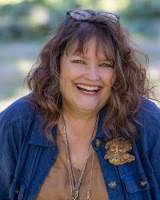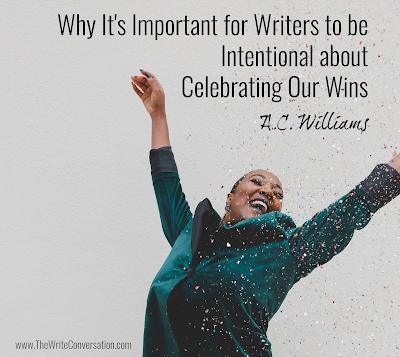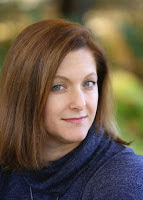Edie Melson's Blog, page 102
January 9, 2023
4 Things Writers Need to Do to Find Fulfillment and Avoid Frustration

by Cindy K. Sproles @CindyDevoted
There are four steps in finding order in your writing, so let me begin by telling you what they aren’t. Order in your writing is not a neat desk or a fancy file labeled with multi-colored tabs. It’s not the perfect pen or pad or even a well-organized office. Finding order in your writing is resetting the mindset.
As a new author, and honestly—sometimes as a seasoned author, we have a certain mindset about our writing career. I call it the “white picket fence” thought process—or what we think becoming published means. New writers attend their first conference with pages of written work, attend those 15-minute appointments, and walk away disappointed. It breaks my heart to see enthusiastic writers crumble because of false impressions of the industry.
That’s why we’re starting the new year with some order to the chaos. Here are a few things to help you reset your mindset, build your self-esteem, and fire up your writing career.
Four Steps to Finding Order in Your Writing
1. Learn the craft: If I’ve said this once, I’ve said it a thousand times. Learn the art of writing. Buy books, study, attend conferences, pay attention to those keynotes, and conference teachers. Buy the mp3s and take them home for year-long training. Join a critique group. Practice. Practice. Practice. You may have a college degree in writing, but the rules change when you step into the pages of a novel. Study books in the genre you love to write in and learn style, cadence, and description. You cannot walk into a conference and expect a contract for your book until you know the craft.
2. Write a manuscript: It’s a myth these days that you can walk up to a publisher and sell an unwritten manuscript. Alright, it happens, like .00001% of the time. The days of “old school” publishing are gone. Publishers do not have the staff or money to wine and dine authors as they did forty years ago—unless you’re a Prince Harry, they’ll take whatever and make it ready to publish because they’ll earn their investment, plus some, back. A writer must have a clear picture painted for a platform and marketing and be a decent writer with a unique spin on a topic. Manuscripts are a dime a dozen, and yours must shine and rise to the top to gain the attention of a publisher. You must write before you can sell. This leads me to the next point.
3. Accept that having an agent doesn’t come first: Attending a conference and talking with agents is wonderful. However, the hidden truth is new writers go for the gold before they’ve won the heat. Once again, unless there is a manuscript to sell, there is no need to sweat over attaining an agent. They cannot sell what is not written. If you are a new writer, talk with agents. Network. Let them read your work and guide you on trends and writing levels. Once you get that polished manuscript ready, then worry about gaining an agent. They may show an interest in what you have written, but again, a well-established agent will probably not sign a writer without a completed manuscript or at least one that is nearly complete. So often, I see new writers devasted because an agent did not pick them up. Don’t be. Gaining an agent is a step in the publishing process. Learn the steps and work toward the goal. You’ll eventually get where you want to go.
4. Seek out critique groups and writing coaches/mentors: This is well spent time and sometimes money depending on your need. Critique groups are wonderful, especially groups like Word Weavers, Intl. You’ll gain great feedback with encouragement and direction. Once you have a manuscript, taking time to invest in your manuscript by hiring a coach or mentor will help you polish and work out any bugs before you begin to pitch your work. A good critique group or mentor is never a waste of time or money.
When you learn the order of your writing career, you are able to set attainable and realistic goals. You will work on a more productive level when you understand the steps to publication. Let’s recap what order in your writing IS:Pray, Pray, PrayLearn the craftJoin a critique groupWrite a manuscriptAttend conferences and networkInvest in a coach or mentorComplete a manuscriptWrite a proposalSeek an agentBegin the next project
Reset your mindset and make a plan. Working your plan in the right order will lead you in the right direction with your writing career.
TWEETABLE4 Things Writers Need to Do to Find Fulfillment and Avoid Frustration from @CindyDevoted on @EdieMelson (Click to Tweet)
 Cindy K. Sproles is an author, speaker, and conference teacher. Having served for a number of years as a managing editor for Lighthouse Publishing of the Carolinas and Ironstream Media, Cindy now works as a mentor, coach, and freelance editor. She is the co-founder of Writing Right Author Mentoring Services with Lori Marett and she is the director of the Asheville Christian Writers Conference. Cindy is also the co-founder of Christian Devotions Ministries and WWW.CHRISTIANDEVOTIONS.US, as well as WWW.INSPIREAFIRE.COM. Her devotions are in newspapers and magazines nationwide, and her novels have become award-winning best-selling works. She is a popular speaker at conferences and a natural encourager. Cindy is a mountain girl, born and raised in the Appalachian mountains, where she and her husband still reside. She has raised four sons and now resorts to raising chickens where the pecking order is easier to manage. You can visit Cindy at WWW.CINDYSPROLES.COM or www.wramsforwriters.com.
Cindy K. Sproles is an author, speaker, and conference teacher. Having served for a number of years as a managing editor for Lighthouse Publishing of the Carolinas and Ironstream Media, Cindy now works as a mentor, coach, and freelance editor. She is the co-founder of Writing Right Author Mentoring Services with Lori Marett and she is the director of the Asheville Christian Writers Conference. Cindy is also the co-founder of Christian Devotions Ministries and WWW.CHRISTIANDEVOTIONS.US, as well as WWW.INSPIREAFIRE.COM. Her devotions are in newspapers and magazines nationwide, and her novels have become award-winning best-selling works. She is a popular speaker at conferences and a natural encourager. Cindy is a mountain girl, born and raised in the Appalachian mountains, where she and her husband still reside. She has raised four sons and now resorts to raising chickens where the pecking order is easier to manage. You can visit Cindy at WWW.CINDYSPROLES.COM or www.wramsforwriters.com.
Published on January 09, 2023 22:00
January 8, 2023
Develop a Strong Writing Platform By Exercising Your Online Muscles

by Edie Melson @EdieMelson
We all know the importance of staying in shape. Today I’m going to give you a workout plan to keep your social media life in shape. To stay efficient at social media we’ve got to be lean.
After all our goal is a writing life, not a marketing one.
A Workout Plan to Help Writers Develop a Strong Online Foundation
Sit Ups: This is the one where you sit up and take notice of what’s going on around your digital neighborhood.
Strength Training: Where do you have the most followers and friends? That’s where you need to invest the majority of your time. For me, that’s twitter. I have over 20,000 Twitter followers, so I make sure my interactions on that platform stay fresh and current. I also spend time on Facebook, but not as much because I don’t have as strong a presence there.
Push Ups: Make it a practice to push up your numbers. Spend a short time each day adding new friends and followers on social media. The best way to do this (actually the only way I recommend)? Be a friend to have a friend.
Hurdles: Look at the obstacles ahead of you. If you're struggling with something take a run at it. Learn a new skill to keep your social media on track and moving forward.
Sprints: Keep watch on the amount of time you spend on social media. Don’t go over that 30 minute a day threshold. Don’t forget the law of diminishing returns. After 30 minutes, your productivity and value goes way down.
Endurance Training: Remember this thing called social media takes time—it’s a marathon. Take small consistent steps and you’ll find success every time.
Cardio: Make sure you follow your heart and your passion. Share things that mean something to you, and you'll be valuable to those who follow you.
Now it’s your turn, what exercise would you add to this social media workout routine?
Don’t forget to join the conversation!Blessings,Edie
TWEETABLEDevelop a Strong Writing Platform Through Social Media Strength Training, @EdieMelson (Click to Tweet)
 Edie Melson is a woman of faith with ink-stained fingers observing life through her camera lens. She’s a writer who feels lost without that device & an unexpected speaker who loves to encourage an audience. She also embraces the ultimate contradiction of being an organized creative. She knows the necessity of Soul Care and leads retreats, conferences & workshops around the world on staying connected to God. Her numerous books, including the award-winning Soul Careseries & reflect her passion to help others develop the strength of their God-given gifts. Her blog, The Write Conversation is recognized as one of the top 101 industry resources.
Edie Melson is a woman of faith with ink-stained fingers observing life through her camera lens. She’s a writer who feels lost without that device & an unexpected speaker who loves to encourage an audience. She also embraces the ultimate contradiction of being an organized creative. She knows the necessity of Soul Care and leads retreats, conferences & workshops around the world on staying connected to God. Her numerous books, including the award-winning Soul Careseries & reflect her passion to help others develop the strength of their God-given gifts. Her blog, The Write Conversation is recognized as one of the top 101 industry resources. She and husband Kirk have been married 40+ years and raised three sons. They live in the foothills of the Blue Ridge Mountains and can often be found hiking—with Edie clinging to the edge of a precipice for the perfect camera angle and Kirk patiently carrying her camera bag and tripod. Connect with her on her website, www.EdieMelson.com and through social media.
Published on January 08, 2023 22:00
January 7, 2023
Seeing the Right Thing with Writing

by Martin Wiles @LinesFromGod
Seeing the right thing in life and with our writing doesn’t always come easy.
I had taught her throughout middle school and, years before, her siblings. This younger sibling, however, differed from her older siblings. They were attentive; she hated school, loved to talk, and enjoyed testing the rules.
On our last week of school before Christmas break, I performed my usual ritual: I showed the 1984 version of A Christmas Carol.
The pivotal part of the movie comes when Ebenezer Scrooge’s dead partner visits him as a ghost. He wears chains with money-changing boxes dispersed throughout. His famous dialogue with Scrooge includes the sentence, “Mankind was my business.” Then he explains to Scrooge how he spent his time in their money-changing hole when he should have taken more time for others. He should have shown love, but he was too busy. So now, he must wear the chains as punishment.
In the middle of this profound—and spiritually provocative—speech, my young student asked, “Why is he blue?”—demonstrating how we can miss the essential things in life and our writing. Her statement revealed what Scrooge’s partner said at that moment.
Jesus illustrated this same truth in different words: “Wherever your treasure is, there the desires of your heart will also be” (Luke 12:34 NLT). We give our attention to what we determine as important.
And therein lies the challenge. Is what we see as crucial in our writing journey the same as what God sees? Missing the forest for the trees is easy, even without any help from others. But others in the writing world can positively and negatively influence what we view as critical.
Jacob Marley nailed it: humanity is our business. Behind loving God with our entire beings, Jesus said we should love our neighbors as ourselves. Love God with our writing. Love ourselves through our writing. Love others with our writing. There it is—the order our lives should follow.
I’m not one to make New Year’s resolutions—statistically, most are broken in short order—but I think considering questions that relate to our writing is wise. Questions such asWhy do I write?Whom am I trying to influence?How am I attempting to further my writing career?Am I trusting God with my writing?How am I encouraging other writers?Have I accepted God’s path for my writing?
Walking closely with God will help us see the right things at the right time. God’s Spirit will keep us on course with our writing because, left to ourselves, we’ll veer off every time.
How can you do a better job of seeing the right things through your writing?
TWEETABLESeeing the Right Thing with Writing, insight from author Martin Wiles, @LinesFromGod on @EdieMelson (Click to Tweet)
 Martin Wiles is the founder of Love Lines from God (WWW.LOVELINESFROMGOD.COM) and serves as Managing Editor for Christian Devotions, Senior Editor for Inspire a Fire, and Proof Editor for Courier Publishing. He has authored six books and has been published in numerous publications. His most recent book, DON'T JUST LIVE...REALLY LIVE, debuted in October of 2021. He is a freelance editor, English teacher, author, and pastor.
Martin Wiles is the founder of Love Lines from God (WWW.LOVELINESFROMGOD.COM) and serves as Managing Editor for Christian Devotions, Senior Editor for Inspire a Fire, and Proof Editor for Courier Publishing. He has authored six books and has been published in numerous publications. His most recent book, DON'T JUST LIVE...REALLY LIVE, debuted in October of 2021. He is a freelance editor, English teacher, author, and pastor.Featured Image: Photo by Steve Johnson on Unsplash
Published on January 07, 2023 22:00
January 6, 2023
How We Can Use Resolutions to Grow as a Writer

by Tim Suddeth @TimSuddeth
A tradition many writers (and others) have for the new year is to make resolutions. We can use them to help us focus on what our publishing priorities are. And they can be helpful. But let’s admit it, often they are our way of dealing with the guilt from something that didn’t satisfy us the previous year.
That guilt is why so many gyms fill up in January. And why stores sell so many self-help books at this time of year.
We look at resolutions as getting a chance to take a mulligan, a do over. Last year wasn’t that great, but if I just make a couple of changes with my writing life (whether they are tweaks or total demolition), the new year will be better.
Now some of you, as soon as you heard resolution, tuned me out. You’ve been there, done that. I mean, New Year’s was over a week ago. How many resolutions have we already set by the curb?
But before we completely give up on our resolutions, let’s try looking at them a little differently.
Three New Ways for Writers to Look at New Year’s Resolutions.
1. Don’t give them too much power.
I love watching college football. What those athletes can do on the field is astonishing. This huge guy flies down the field with another huge guy by his side. He jumps and reaches for a ball that if I tried to catch, it would knock the breath out of me. He grabs the ball in a hand the size of a catcher’s mitt and lands, dragging his foot just inside the line.
All this happens in a split second.
But wait, they review the play, and what happened in that split second, they inspect frame by frame. They determine that his size thirteen shoe just grazed the line. They reverse the call, and the celebration comes to a crashing halt.
The player could hang his head and feel like a failure, even though he still made an unbelievable move.
That’s what we often do with our resolutions. When we miss a day at the typewriter, or a day at the gym, we consider it a failure and give up. Worse, we may label ourselves as a failure.
Instead of giving up on the resolution, why don’t we do like most players? Shake it off and get back in the writing game.
Although we call them resolutions, that doesn’t mean we write them in stone. (Somebody else, capital S, does that.) Maybe it would help if we called them New Year’s suggestions. Remember, we make the resolution not to make us feel bad, but to help us improve.
2. Don’t think one size fits all.
It’s easy to get caught up in the excitement of others. Someone on TikTok mentions they plan to read a different book on the writing craft each week for a year, and they get a long stream of comments. Everyone in your writer’s group thinks it’s a great idea. And you agree.
Except you discover you need to read the book slower to get the most out of it. And you fall behind.
What do you do?
I encourage you to go back to why you picked this resolution. If you are learning from the books, it sounds like it’s working.
But then you worry you won’t read 52 books in the year. Do you think someone is keeping score?
Do what works for you. Everybody forgets about resolutions by March anyway. But if they help you start a new habit that is beneficial, good for you.
3. Don’t be afraid to challenge yourself.
Too often, we are so afraid of failing (There’s that word again.), that we don’t make resolutions that stretches us as writers. We make a generic resolution like, “I’m going to lose weight. Or I’m going to read more.” Those could be for anyone, anytime.
There are two problems with resolutions like these. First, you can’t tell if you kept it or not. When you set goals, you need to set clear steps of you need to do. A good way is to make sure your goals are SMART. (You can find articles about making SMART goals by searching this blog.)
Second, a resolution like this doesn’t really test anyone. To make a resolution most effective, you want to choose something that stretches you.
Remember, the resolution is for you. It isn’t a judgement. If circumstances keep you from completing it, or you decide you don’t want to do it, that doesn’t minimize you. You’re not a loser or quitter or whatever that nagging voice in your head likes to use. Sometimes, this just isn’t the right time for you to make this change.
But there is power in making resolutions. Whether you do it now, or at another time in the year, it’s always good to take time to look at your writing life and objectively decide what priorities you want to have, and what steps you should take.
Whether or not you made your resolutions, chose a Bible verse, or a word for the year, I wish you a very happy and blessed new year. May 2023 be a year where you see God’s power and love show off in your life.
TWEETABLEHow We Can Use Resolutions to Grow as a Writer, insight from writer @TimSuddeth on @EdieMelson (Click to Tweet)
 Tim Suddeth is a stay-at-home dad and butler for his wonderful, adult son with autism. He has written numerous blogs posts, short stories, and three novels waiting for publication. He is a frequent attendee at writers’ conferences, including the Blue Ridge Mountain Christian Writers Conference and a member of Word Weavers and ACFW. He lives near Greenville, SC where he shares a house with a bossy Shorky and three too-curious Persians. You can find him on Facebook and Twitter, as well as at www.timingreenville.com and www.openingamystery.com.
Tim Suddeth is a stay-at-home dad and butler for his wonderful, adult son with autism. He has written numerous blogs posts, short stories, and three novels waiting for publication. He is a frequent attendee at writers’ conferences, including the Blue Ridge Mountain Christian Writers Conference and a member of Word Weavers and ACFW. He lives near Greenville, SC where he shares a house with a bossy Shorky and three too-curious Persians. You can find him on Facebook and Twitter, as well as at www.timingreenville.com and www.openingamystery.com.Featured Image: Photo by Kelly Sikkema on Unsplash
Published on January 06, 2023 22:00
January 5, 2023
Why It's Important for Writers to be Intentional about Celebrating Our Wins

by A.C. Williams @ACW_Author
Happy New Year! It’s a brand new start with fresh opportunities and clean slates all around. It’s a time for refreshing goals, restructuring plans, and launching into resolutions with single-minded focus.
This year is the year you’re going to finish that book, submit that proposal, record that podcast, edit that video, etc. Right? Most of us want to lose weight. Many want to develop better habits. We all want to build stronger boundaries.
All of that is wonderful. All the goals you’re planning to achieve in 2023 are amazing, and I hope and pray that you are able to accomplish everything you’ve set your mind to. However, there is one task list item that may be left over from 2022. If you haven’t taken care of it, let me encourage you to stop what you’re doing right now and switch your focus.
What is this extremely important task? Oddly enough, it’s not complicated. It’s not even a challenge. Yet it’s something that many of us forget to do.
Celebrate your wins.
That’s it. Celebrate. Make the time to memorialize what you accomplished. Be intentional about celebrating what you got done.
I have found that writers are really bad about this (Christian writers specifically). I’m not sure where the tendency to neglect our celebrations came from. It could be general overwhelm. Writing is difficult work, and there’s no end to it. There’s always more to learn, more to write, more to edit. And the typos! Ugh!
Perfectionism plays a big role in most creative careers, probably because the standard of performance is a sliding scale based on audience expectations. And that’s not to say that we shouldn’t be striving for excellence, but excellence and perfection aren’t the same thing.
If you are waiting to celebrate until you write the perfect book, you will be waiting until the end of your life. Sorry to break it to you, my friend, but there is no perfect book. There’s certainly no perfect manuscript. I had to learn a long time ago that the only way for a story to become what God wanted it to be was for me to let it go, usually before I thought it was ready.
Writing a book is a big deal. For those of us who have written many books, I think we forget how big a deal it is in the scramble to get to the next manuscript. Let’s stop forgetting. Let’s make time to celebrate that we translated our life experiences into words on paper (digital or otherwise) in a way that other people can consume. For those of you who write non-fiction, you struggled over every detail to make sure it was accurate. For you who write fiction, you strained your brain for every ounce of creativity to get a scene just right.
None of that “just happens.” Writing a book isn’t an accident. It takes time, purpose, focus, along with the requisite blood, sweat, and tears.
Celebrate!
Think back on all the long hours at your keyboard. Remember how hard you pushed yourself to find the exact word to complete a scene. Don’t just ignore the challenges you overcame to create something beautiful. We grow through what challenges us. Remember it. Rejoice over how much you’ve grown and how far you’ve come.
When you make time to celebrate your accomplishments, it changes your perspective. It’s not just because it gives you something to look forward to. It gives you an opportunity to look back on the milestones you’ve reached, the huge growth you’ve experienced in your life. I’ve found that acknowledging how much you’ve grown as an artist makes it easier to keep growing. And don’t we all want to keep growing? I sure haven’t done everything I’ve been put on earth to do yet, at least not as far as I know.
Don’t hold on to the idea of a perfect book so tightly that you forget to celebrate your work in progress. Give yourself permission to loosen up a little. Your self-imposed deadlines will be there in the morning, and who knows? If you intentionally celebrate the work you’ve gotten done so far, it may just energize you enough to keep you going until The End.
In 2023, let’s all be more intentional about making time to celebrate our creativity. Get excited. Throw a party. And be grateful to our wondrous Creator God who is exalted when His children celebrate the gift He gave them.
TWEETABLEWhy It's Important for Writers to be Intentional about Celebrating Our Wins from @ACW_Author on @EdieMelson (Click to Tweet)
 Award-winning author, A.C. Williams is a coffee-drinking, sushi-eating, story-telling nerd who loves cats, country living, and all things Japanese. She’d rather be barefoot, and if she isn’t, her socks won’t match. She has authored eight novels, two novellas, three devotional books, and more flash fiction than you can shake a stick at. A senior partner at the award-winning Uncommon Universes Press, she is passionate about stories and the authors who write them. Learn more about her book coaching and follow her adventures online at https://www.amycwilliams.com.
Award-winning author, A.C. Williams is a coffee-drinking, sushi-eating, story-telling nerd who loves cats, country living, and all things Japanese. She’d rather be barefoot, and if she isn’t, her socks won’t match. She has authored eight novels, two novellas, three devotional books, and more flash fiction than you can shake a stick at. A senior partner at the award-winning Uncommon Universes Press, she is passionate about stories and the authors who write them. Learn more about her book coaching and follow her adventures online at https://www.amycwilliams.com.Featured Image: Photo by Clay Banks on Unsplash
Published on January 05, 2023 22:00
January 4, 2023
Meaningful Resolutions for Writers

by Lynn H. Blackburn @LynnHBlackburn
Resolutions to eat healthier, lose weight, scroll less, read more…I don’t need to go into detail. You know exactly how this works.
I can’t remember the last time I made New Year’s Resolutions. I lean toward a “word of the year” approach.
But this year, I started thinking about my writing goals and decided it was time to make some resolutions, Jonathan Edwards style. He had seventy resolutions . I’m going to keep it to six. You’re welcome!
6 Resolutions for Every Writer
1. Resolved, to pray for my writing. I could read more books on the craft (and I will). I could take more classes (and I will). I could attend more conferences (and I will). But there is no other thing I can do that will have a greater impact on my writing than my intentional surrender—every day—to God’s will and God’s direction.
2. Resolved, to pray for my writing community. God has gifted me the friendship and love of writers all over the country and the world. Lifting them up during deadlines, illness, and the inevitable ebb and flow of their careers is a private way I can support them as they live out their calling.
3. Resolved, to be content with what God is doing with my career. Sure, there are writers out there who can write five books a year, in three different genres, that win multiple awards and make all the bestseller lists. I am not that writer. When they are lauded for their achievements, I will acknowledge their success without trying to emulate them. I will remember that how God chooses to use my offering is up to him. And I will be thankful that He hasn’t given me that much writing to do, because, seriously, one book a year is all I can manage right now!
4. Resolved, to trust the process that works for me. I don’t claim to have all the answers, but I’ve been doing this long enough that I’ve learned that some things work for me, and some things don’t. When others insist their way—whether in writing, marketing, or other business decisions—is the right way, I will refuse to doubt myself. And when, inevitably, I do doubt myself, I will take it to God in prayer, rather than to ten other people who will have ten different opinions.
5. Resolved, to strive to improve my craft. I’ll never reach a point where there is nothing more to learn. But if I’m not intentional about my efforts to grow as a writer, my growth will be inconsistent. I will not shy away from legitimate criticism and will focus on the weak spots in my writing.
6. Resolved, to love and pray for my readers. I already do, but recently I’ve been compelled to pray specifically for the readers who will come to my stories at some point in the future. The readers for whom God is giving me words now…words that will encourage them when they need it. It’s an extraordinary thing, to serve a God who exists outside of time, who knows and sees everything, and who is, even now, working out all things for our good and His glory.
What would you add to your list in 2023? Share it with us in the comments!
Happy New Year!Grace and peace,Lynn
TWEETABLEMeaningful Resolutions for Writers from author @LynnHBlackburn on @EdieMelson (Click to Tweet)
 Lynn H. Blackburn loves writing romantic suspense because her childhood fantasy was to become a spy, but her grown-up reality is that she's a huge chicken and would have been caught on her first mission. She prefers to live vicariously through her characters and loves putting them into all kinds of terrifying situations while she's sitting at home safe and sound in her pajamas!
Lynn H. Blackburn loves writing romantic suspense because her childhood fantasy was to become a spy, but her grown-up reality is that she's a huge chicken and would have been caught on her first mission. She prefers to live vicariously through her characters and loves putting them into all kinds of terrifying situations while she's sitting at home safe and sound in her pajamas! Unknown Threat, the first book in her Defend and Protect series, was a 2021 Christy Award finalist and her previous titles have won the Carol Award, the Selah Award, and the Faith, Hope, and Love Reader’s Choice Award. Malicious Intent, the second book in the series, released March 2022.
She is a frequent conference speaker and has taught writers all over the country. Lynn lives in South Carolina with her true love and their three children. You can follow her real life happily ever after by signing up for her newsletter at LYNNHBLACKBURN.COM and @LynnHBlackburn on BOOKBUB, FACEBOOK, TWITTER, PINTEREST, and INSTAGRAM.
Featured Image: Photo by Kelly Sikkema on Unsplash
Published on January 04, 2023 22:00
January 3, 2023
Four Ways to Impress an Editor

by Sarah Sally Hamer @SarahSallyHamer
Editors love to read. Editors love books. Editors want a book to be amazing! Is yours?
Most of the books that cross my computer screen are good. Some are really good. But some need a lot of work. And, usually, an editor can tell within the first couple of paragraphs whether a book is worthy of publishing. That’s scary! The whole book, no matter how good, can be lost by what’s on the first page! So, here are four things that can help you to make sure your book gets past that first read.
First line
It doesn’t have to be epic, like “It was the best of times, it was the worst of times,” or “It is a truth universally acknowledged, that a single man in possession of a good fortune, must be in want of a wife.” But it does need to pull the reader into the story immediately.
Think about exactly what the reader will take away from that first sentence. In Pride and Prejudice, we get a quick taste of the culture (everyone knows that truth) and that there is going to be a romance (single man wanting wife). In A Tale of Two Cities, Dickens immediately contrasts the “good” life in London with the horrors of Paris during the French Revolution. So we know that we’re going to witness both sides of a coin.
What can you say about your story in the first line? Some possibilities include setting the tone (horror? romance? comedy?), introducing a character (with dialog? thought?), or creating a question (will the character get what he or she wants?). Regardless of your method, see if you can find a way to draw the reader in and make that editor read the rest of the page.
Structure
If a story starts with a lot of exposition and/or description, the reader will wonder if the whole book is going to be the same. We want our books to start at the beginning, not by telling a lot of back story. Where does your story start? It should be where the adventure begins, not how the character got there. Bilbo Baggins’s story begins when Gandalf comes to his house to invite him on a quest. We don’t need paragraphs of why Bilbo is bored. Instead, we want the story to start with a “thing”—do you want to go on an adventure?—and build it from there. Back story is very useful and usually told in sequel instead of scene, but starting in media res (in the middle of the action) is the way most modern books begin.
Power Words
We use power words to create tone, genre, shock-factor, and interest. Although there are specific ones for each genre, many of them are universal. For example, a horror story would probably use the terms blood, death, dead body, gun, knife, scream, etc. A romance could include love, kiss, caress, lips, etc.
I recommend you make a list of specific words that create tone and power for your story. Make sure at least one or two of them are on the first page and sprinkle them liberally throughout. Don’t overdo it but allow your readers to “attach” themselves to a theme and stick to it.
Another point about power words is to try not to put them in the middle of a sentence. We readers tend to scan more than read each word, so it can be easy to skip over. Example:
She took a sip of coffee and, when a man fell from the balcony above, she set the cup back on the table.
Do you see how the important part, the man falling, loses its importance because it’s hidden by the surrounding words? Instead, how about this:
She took a sip of coffee and set the cup back on the table. A blur of color passing her window was followed by a scream, a whoosh, and a hard “thump” on the ground below.
Of course, you would continue this (see the next point) with a reaction to the stimulus. Not perfect—I’m sure you can do much better—but do you see how just a few extra words in a better position bring the image to your mind?
Stimulus/Reaction
So, let’s continue the example above. She needs to react to the event. This reaction has a specific process, based on the sympathetic nervous system and how we humans react. First, she would have a VR, a visceral reaction. Her hand would probably come to cover her mouth (if you can stand it, you can watch videos of reactions of people seeing something shocking), she would stand quickly (so she could run or fight), and she would probably scream or say something like “Oh, my God!” What if she knocks her precious cup of coffee over? What if she runs to the balcony to look?
In the second version, we don’t know for sure what it was that passed her window and fell, so what if she has to see to believe that it could be a person? This gives you as the writer a number of ways to SHOW the scene with a very realistic stimulus and reaction to that stimulus. The character MUST react. Sometimes the reaction is outer, where everyone can see it, but sometimes we have a character who isn’t able to react for various reasons. If we’re in that character’s point of view, we have the opportunity to allow them to react on the inside, in their thoughts. Either way works.
If you know how to make all these work on the first page, it’s easy-peasy to continue throughout the book and make it a great one that everyone will want to read.
Which item do you need to work on?
TWEETABLEFour Ways to Impress and Editor, tips from @SarahSallyHamer on @EdieMelson (Click to Tweet)
 Sarah (Sally) Hamer, B.S., MLA, is a lover of books, a teacher of writers, and a believer in a good story. Most of all, she is eternally fascinated by people and how they 'tick'. She’s passionate about helping people tell their own stories, whether through fiction or through memoir. Writing in many genres—mystery, science fiction, fantasy, romance, medieval history, non-fiction—she has won awards at both local and national levels, including two Golden Heart finals.
Sarah (Sally) Hamer, B.S., MLA, is a lover of books, a teacher of writers, and a believer in a good story. Most of all, she is eternally fascinated by people and how they 'tick'. She’s passionate about helping people tell their own stories, whether through fiction or through memoir. Writing in many genres—mystery, science fiction, fantasy, romance, medieval history, non-fiction—she has won awards at both local and national levels, including two Golden Heart finals.A teacher of memoir, beginning and advanced creative fiction writing, and screenwriting at Louisiana State University in Shreveport for over twenty years, she also teaches online for Margie Lawson at www.margielawson.com. Sally is a free-lance editor and book coach at Touch Not the Cat Books, with many of her students and clients becoming successful, award-winning authors.
You can find her at hamerse@bellsouth.net or www.sallyhamer.blogspot.com
Published on January 03, 2023 22:00
January 2, 2023
Reflect, Reframe, Refocus for Results for Your Writing

by PeggySue Wells @PeggySueWells
As you reflect back on 2022, these tips will help you bring appreciation and meaning to last year and focus and hope for the next.
1) Reflect
What were the highlights? What were the disappointments? What are you thankful for? What were your wins?
What gains did you achieve? Even if you didn't attain your goal, what progress did you make?
Perhaps you planned to complete your next book, but still need another 10,000 words and to polish the manuscript. Instead of being disappointed in the gap between the actual result and the goal, measure the progress. The gain is you are nearly complete with a book.
How are you further along at the end of the year than you were in the beginning? Celebrate your progress.
2) Reframe
Consider the regrets, humiliations, and mistakes you would rather not think about. What did you learn? What did God teach you about Him? Turn wishes for a rewind button into learning experiences that move you forward. Reframe the meaning of the event by finding the value.
One of the best reframes was said by Joseph of the Old Testament. His brothers hated him so much they wanted to kill him but settled for selling him into slavery. Later, Joseph reframed that event when he said in Genesis 50:20, “ You intended to harm me, but God intended it for good to accomplish what is now being done, the saving of many lives.”
Continuing to look back is the antithesis of moving forward. Paul said in Hebrews 12:1-2 “Let us throw off everything that hinders and the sin that so easily entangles. And let us run with perseverance the race marked out for us, fixing our eyes on Jesus, the pioneer and perfecter of faith.” Our past is more fluid and malleable than we realize. Transform mistakes into learning experiences that help you grow.
What did I learn? What did God teach me about Him?
3) Refocus
Select one goal for 2023 that will move you toward being the person you most want to be. Each day do something toward achieving that goal sooner rather than later. What one to three goals will move you toward being the person you want to grow into? Each day, what step can you take to progress in that direction?End each day by jotting down three things you are thankful for List three winsWrite down the one thing to do the next day that will move you forward with your most important goal Ask your brain to solve a problem for you in the night.
What is the 2023 goal that makes your eyes light up?
For more fast-acting tips, check out What You Won't Do In 2022 Or Any Other Time
TWEETABLEReflect, Reframe, Refocus for Results for Your Writing, thoughts from author @PeggySueWells on @EdieMelson (Click to Tweet)
 Tropical island votary and history buff, PeggySue Wells parasails, skydives, snorkels, scuba dives, and has taken (but not passed) pilot training. Writing from the 100-Acre Wood in Indiana, Wells is the bestselling author of thirty books including The Slave Across the Street, Slavery in the Land of the Free, Bonding With Your Child Through Boundaries, Homeless for the Holidays, Chasing Sunrise, and The Ten Best Decisions A Single Mom Can Make. Founder of SingleMomCircle.com, PeggySue is named for the Buddy Holly song with the great drumbeat. At school author visits, she teaches students the secrets to writing and speaks at events and conferences. Connect with her at www.PeggySueWells.com, on Facebook at PeggySue Wells, and LinkedIn at linkedin.com/in/peggysuewells
Tropical island votary and history buff, PeggySue Wells parasails, skydives, snorkels, scuba dives, and has taken (but not passed) pilot training. Writing from the 100-Acre Wood in Indiana, Wells is the bestselling author of thirty books including The Slave Across the Street, Slavery in the Land of the Free, Bonding With Your Child Through Boundaries, Homeless for the Holidays, Chasing Sunrise, and The Ten Best Decisions A Single Mom Can Make. Founder of SingleMomCircle.com, PeggySue is named for the Buddy Holly song with the great drumbeat. At school author visits, she teaches students the secrets to writing and speaks at events and conferences. Connect with her at www.PeggySueWells.com, on Facebook at PeggySue Wells, and LinkedIn at linkedin.com/in/peggysuewells
Published on January 02, 2023 22:00
How to Choose Your Best Writing Yes in the New Year

by Kristen Hogrefe Parnell @KHogrefeParnell
A few years ago, I read The Best Yes by Lysa Terkeurst, and if you’re looking for a New Year’s read, this one is worth adding to the list (or reading again). My takeaway was that in order to give my best yes, I must also be willing to say no to other good things.
Right now, many people have pledged themselves to resolutions, but the truth is, we must first evaluate our current commitments before we can take on anything else in the year ahead. As writers, this exercise is essential to maximize our potential and prevent burnout.
The Danger of Overeating and Overcommitting
We probably all ate some delicious meals over the holidays, so let’s consider a food analogy. Your Christmas or New Year’s menu might have included:AppetizerBeverage Main courseSide oneSide twoDessertSeconds?
You likely had choices of drinks, sides, and desserts, and not everything would fit on your plate. You had to make the best choice based on your preferred tastes. If you were tempted to go back for seconds, you might have overeaten and felt bloated as a consequence.
Our plate of commitments is similar. Some aren’t optional, and these include writing contracts and deadlines we’ve already accepted. But we get to pick the “sides” and “desserts” or how we spend our spare moments. If we try to stuff everything into our calendars, we’ll end up miserable afterward.
What’s on Your Plate?
Adding to our plates seems easy to do. After all, who doesn’t want a second dessert or another helping of your favorite side dish?
Subtraction is harder. Saying no to something good (like grandma’s apple pie or that fun short story contest) feels somehow—wrong.
But just as we should choose a food sampling instead of taking every option available, so too we need to selectively choose the “good things” we commit to this year. In the process, we also have to say no or not at this time to some options that we might actually enjoy.
Take an inventory of everything writing-related that you’ve already committed to, and don’t leave anything off. Here are some possible categories:Back-burner projectsBloggingBook reviewsConferences/travelContestsContracted work and deadlinesCritique groupsGuest bloggingMarketingPodcastsProposalsReading Social mediaTeaching opportunitiesWebsite maintenance
Then, looking at the same categories, ask yourself what you want to add this year. Then, do some simple math (concerning your time, energy, and resources) and decide what you want to keep, what you need to remove, and what you can add.
Choosing Well
As we’ve turned the page to a new year, today is a perfect time to evaluate our current commitments and what we hope to accomplish with our writing in the year ahead. Before plunging forward with resolutions that might wear us out or make our time too thin, let’s consider what’s currently on our plates and choose carefully, so that what we commit to do, we can do well.
What is something you need to pass on or something you want to add to your writing plate this year?
TWEETABLEHow to Choose Your Best Writing Yes in the New Year, insight from @KHogrefeParnell on @EdieMelson (Click to Tweet)
 Kristen Hogrefe Parnell writes suspenseful fiction from a faith perspective for women and young adults. Her own suspense story involved waiting on God into her thirties to meet her husband, and she desires to keep embracing God’s plan for her life when it’s not what she expects. Kristen’s books have won the Selah Award and the Grace Award, among others, and her romantic suspense novel Take My Hand is now available. An educator at heart, she also teaches English online and enjoys being a podcast guest. Kristen lives in the Tampa, Florida area with her husband and baby boy. Visit her online at KristenHogrefeParnell.com.
Kristen Hogrefe Parnell writes suspenseful fiction from a faith perspective for women and young adults. Her own suspense story involved waiting on God into her thirties to meet her husband, and she desires to keep embracing God’s plan for her life when it’s not what she expects. Kristen’s books have won the Selah Award and the Grace Award, among others, and her romantic suspense novel Take My Hand is now available. An educator at heart, she also teaches English online and enjoys being a podcast guest. Kristen lives in the Tampa, Florida area with her husband and baby boy. Visit her online at KristenHogrefeParnell.com.
Published on January 02, 2023 02:52
December 31, 2022
Before You Start the New Year as a Writer

by Audrey Frank @AudreyCFrank
Audrey here. This post is a bit of a coup, the nice, non-violent type. Edie deserves a gift of our gratitude this new year for all the ways she has mentored us and provided resources to help us become better writers. So here’s my gift to my mentor, with so much love! Thank you, Edie, for letting me take over for just a moment.
I took you from the ends of the earth, from its farthest corners I called you. I said, “You are my servant”, I have chosen you and have not rejected you. Isaiah 41:9
Shada* was born in a far corner of the earth, among a peaceful culture in the mountains of Iraq. Today she would stand before Congress and testify about the genocide of her people. I was her cultural liaison. Her village and her people made history the fateful day the Taliban invaded, murdering the boys and men, kidnapping her and all the young girls.
I came to know Shada because of a critical decision I made early in my writing career. At the dawn of my debut, my wise mentor Edie Melson quietly counseled me, Before you start, know why. Answer this and it will be a filter for your writing the rest of your life. I paused and thought deeply about this question. As I spent time in prayer and reflection, I settled firmly on the words of Isaiah 45:3:
I will give you riches hidden in the darkness and things of great worth that are hidden in secret places. Then you may know that it is I, the Lord, the God of Israel, who calls you by name.
My why emerged clear and strong:
The purpose of my writing is to bring forth God’s treasures out of life’s darkness, to display His riches stored in secret places, that those who read my words will know that the Lord calls them by name.
Now, when an idea or an opportunity comes my way, I filter it through my why. There is so much good writing that can be done. But I want to do what I was called to do, what I was chosen specifically for by the Author and Finisher of all our stories (see Hebrews 12:2). For me, that means telling true stories of riches that come out of the dark places in life, treasures that are found on the pathway of suffering. It’s a heavy task some days, and I argue with God that I would rather be a comedian. But then there are women like my Iraqi friend. The world needs her story of bravery. Because of Shada’s testimony, the United States government declared the atrocities against the Yazidi people a genocide. In turn, that little-known place of peaceful people has become much-known for its courage. Today Yazidi women are advocating for victims still trapped in the darkness of terrorism and trafficking.
Pens poised over the new year, ready to begin, make sure before you start you know your why.
Take pause, pray and reflect. God will show you. Let His purpose for your words guide your writing this new year.
(And let’s shout out our thanks to God for the mentors along the way, including the humble and generous Edie Melson.)
Lord, show me your purpose for my writing, and let it be a filter for all my words. Amen.
TWEETABLEBefore You Start the New Year as a Writer, wisdom from @AudreyCFrank on @EdieMelson (Click to Tweet)
*Shada means “Star of God.” It’s not her real name, for her protection. But I thought it fitting for such a brave display of riches out of darkness.
 Audrey Frank is an author, speaker, and storyteller. The stories she shares are brave and true. They give voice to those whose words are silenced by shame, the hard things in life that don’t make sense, and the losses that leave us wondering if we will survive. Audrey and her family have spent over twenty years living and working among different cultures and world views, and she has found that God’s story of redemption spans every geography and culture. He is the God of Instead, giving honor instead of shame, gladness instead of mourning, hope instead of despair. Although she has three different degrees in communication and intercultural studies, Audrey’s greatest credential is that she is known and loved by the One who made her.
Audrey Frank is an author, speaker, and storyteller. The stories she shares are brave and true. They give voice to those whose words are silenced by shame, the hard things in life that don’t make sense, and the losses that leave us wondering if we will survive. Audrey and her family have spent over twenty years living and working among different cultures and world views, and she has found that God’s story of redemption spans every geography and culture. He is the God of Instead, giving honor instead of shame, gladness instead of mourning, hope instead of despair. Although she has three different degrees in communication and intercultural studies, Audrey’s greatest credential is that she is known and loved by the One who made her.Audrey is the author of Covered Glory: The Face of Honor and Shame in the Muslim World (Harvest House Publishers), an outpouring of Audrey’s heart to introduce others to the God of Instead. Shame is not unique to the developing world, the plight of the women behind veils, young girls trafficked across borders; shame is lurking in hearts everywhere. Through powerful stories from women around the world, Covered Glory illuminates the power of the Gospel to remove shame, giving honor instead. Available at favorite booksellers: BARNES & NOBLE , BOOKS A MILLION, AMAZON.
Published on December 31, 2022 22:00



